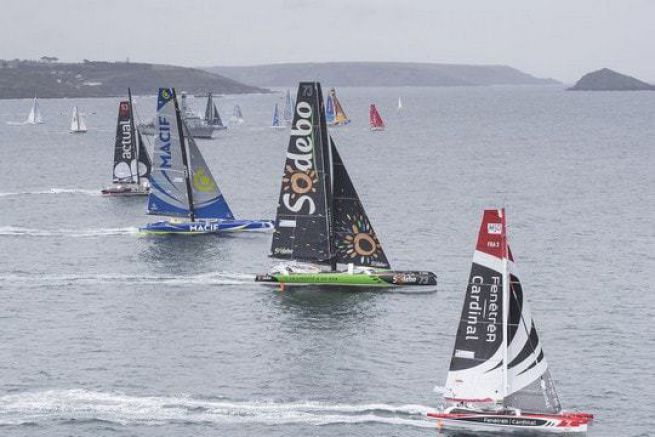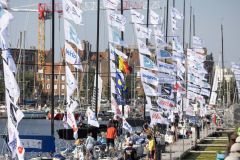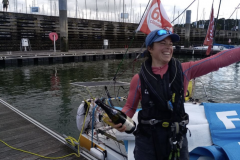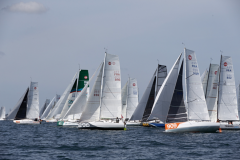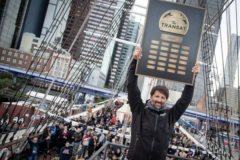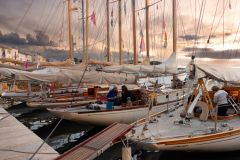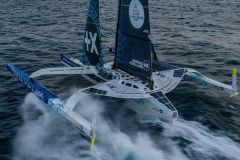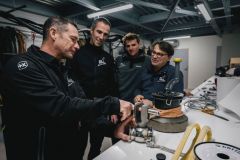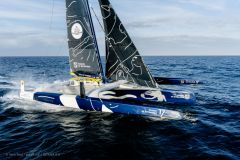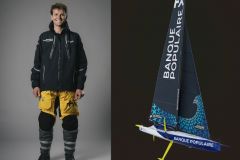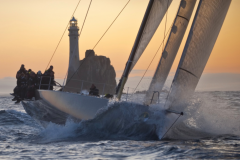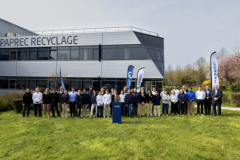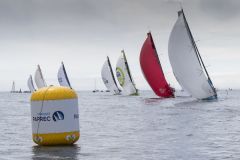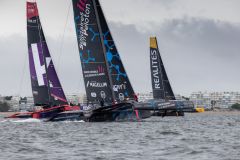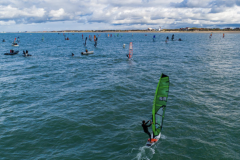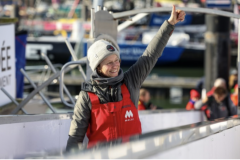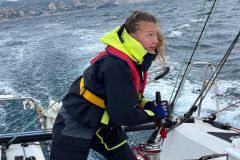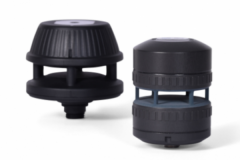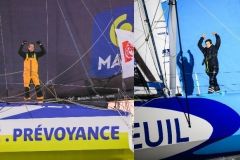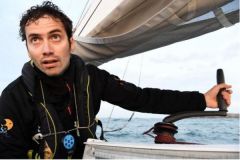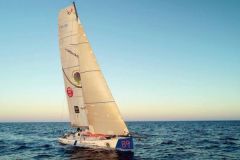They are 24 solo sailors and the outsider Loïck Peyron who have prepared to cross the Atlantic to reach New York from Plymouth. Divided into 4 classes: 3 Ultimates, 5 Multi 50s, 6 Imoca and 10 Class 40s, the skippers all have different ambitions: to win, to participate, to give their best!
With the return of the Ultimates âeuros they had been refused from 1980 âeuros the reference time established in 2004 by Michel Desjoyeaux on the 18.28 m ORMA trimaran, Géant, in 8 d 8 h 30' could jump. Indeed, current routing suggests that the first Ultimates could arrive in 8 d 8 h 50â?¦ Knowing that with this finish in New York, the course from Plymouth has been lengthened by a hundred miles compared to the 12 previous editions, where the finish was Newport.
For the Imoca monohulls, the reference remains that of Loïck Peyron on Gitana Eighty, during the last edition (2008) in 12 d 8 h 45. A performance that will be difficult to beat for the 6 solo sailors involved, with these additional 100 miles.
For the two remaining classes, only the 2004 edition has established the reference time between Plymouth and Newport: 14 d 1 h 23' by Eric Bruneel on the trimaran Trilogic. As for the Class40s, they were only present as a specific category in 2008: Giovanni Soldini on Telecom Italia won in 16 d 22 h 11'.
Only Eric Tabarly and Loïck Peyron have won the race several times: twice for the former (1964 and 1976) and three times for the latter e (1992 and 1996 in multihull and 2008 in monohull).
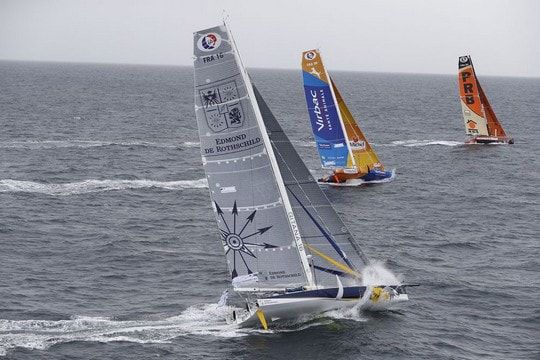
What course?
Soloists will have three main paths to choose from:
- The northern route, which would allow them to bypass (in part) the arrival of a low-pressure system on Wednesday and the next one at birth over Newfoundland;
- The direct route (orthodromy) which imposes to make a lot of winding before crossing a succession of more or less violent fronts;
- The southern route towards the Azores or even further, to go along the high pressure system, benefiting from lighter seas and a less sustained breezeâeuros¦
In 1960, Francis Chichester, winner of the race, took 74 days! In 2016, the three Ultimates entered should take a week and the last of the Class40s, about fifteen days.
The Transat is a demanding and difficult ocean race where you flirt with icebergs and where the equipment is put to the test.
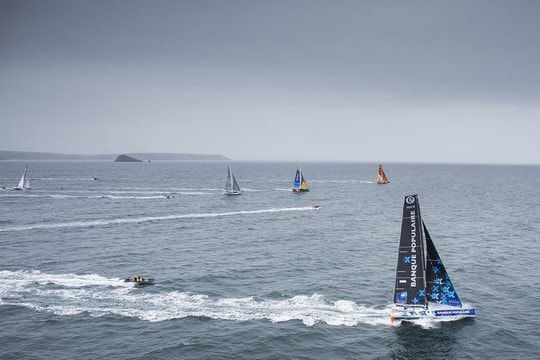
Which winner?
In the Ultimates, the duel will be between Macif (François Gabart) and Thomas Coville (Sodebo). But if the first two are in contact, Yves Le Blévec could come and make his presence felt¦ In the Imoca class, it will be like in the Transat Jaques Vabre, with a battle between the "foilers" Banque Populaire-Armel Le Cléac'h, StMichel-Virbac-Jean Pierre Dick, Edmond de Rothschild-Sébastien Josse) and the classics (PRB-Vincent Riou, SMA-Paul Meilhat), with Richard Tolkienâ??s 44 proving to be too old to claim the podium.
"It is not trivial to cross the Atlantic on a 30-meter boat. It's obviously quite impressive (âeuros¦) At the same time, it's exactly what I've come to look for, I've been dreaming about it since we launched the project in 2013. The outcome is certainly the round the world race in 2017, but it is a very important intermediate step. I am necessarily thinking about winning. I will try to be in front because I am a competitor, but that remains a secondary objective. The main thing is really to learn and to arrive in New York "explains François Gabart
Among the Multi50s, variety is the order of the day! The two names that stand out are Erwan Le Roux (FenêtréA-Cardinal) and Lalou Roucayrol (Arkema) because of their recent track record. But beware of Gilles Lamiré (French Tech Rennes-Saint Malo), who could be affected by the weather, as well as Pierre Antoine (Olmix) and Éric Nigon (Vers un monde sans Sida), who are used to tricky situations and reversals of fortune.
Among the Class40s, the only two women in The Transat Bakerly, Isabelle Joschke (Generali-Horizon Mixité) and Anna-Maria Renken (Nivea), have been training hard to give themselves the best chance. Three skippers also have a recent and optimized Class40: Thibaut Vauchel-Camus (Solidaires en peloton-ARSEP), Maxime Sorel (VandB) and Armel Tripon (Black Pepper-Les petits doudous par Moulin Roty).
"This transatlantic race scares me a little bit, it reminds me of big waves, cold, wetness, but at the same time, I really want to try. I have already been to Plymouth in a Mini 6.50 and in a Figaro. We are always very well receivedâeuros¦ So it is an additional pleasure to take the start off this port very anchored in the tradition of sailing and ocean racing. I don't consider myself to be one of the favorites, as it's only been a month and a half since I discovered my boat and I'm still in a learning phase on this circuit. I don't have the fastest boat in the fleet either. But I want to give my best, I still have experience that I want to exploit to make a good track and the best possible result says Isabelle Joschke.
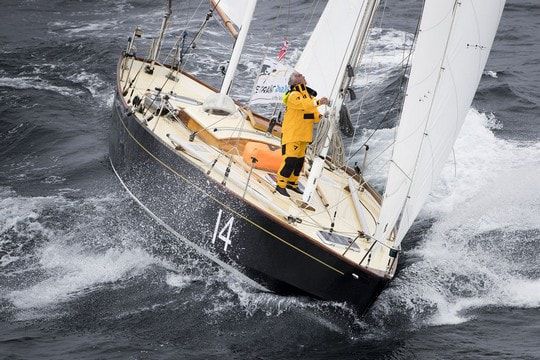
The Transat winners
1960: Francis Chichester (Gipsy Moth) in 40 d 12 h 30'
1964: Éric Tabarly (Pen Duick II) in 27 d 23 h 57'
1968: Geoffrey Williams (Sir Thomas Lipton) in 25 d 20 h 33'
1972: Alain Colas (Pen Duick IV) in 20 d 13 h 15'
1976: Éric Tabarly (Pen Duick VI) in 23 d 20 h 12'
1980: Phil Weld (Moxie) in 17 d 23 h 12'
1984 : Yvon Fauconnier (Umupro Jardin V) in 16 d 6 h 25'
1988: Philippe Poupon (Fleury Michon IX) in 10 d 9 h 15'
1992: Loïck Peyron (Fujicolor II) in 11d 01h 35'
1996: Loïck Peyron (Fujicolor II) in 10d 10h 05'
2000: Francis Joyon (Eure & Loir) in 9d 23h 21'
2004: Michel Desjoyeaux (Géant) in 8d 08h 30'
2008 : Loïck Peyron (Gitana Eighty) in 12d 08h 45
